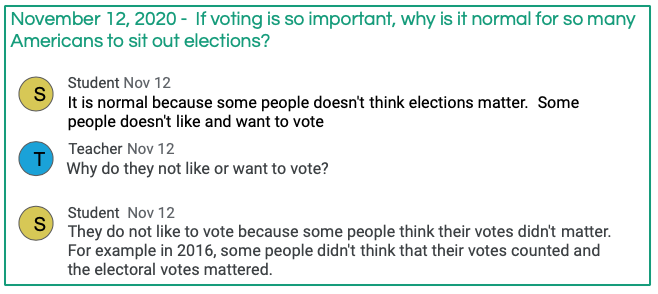Stories of Revisions (2021)
"Please read my comments and revise your work."

A very common sight on Discovery's G-classrooms
This fall, our students keep receiving this message from their teachers when they check the assignments they submitted: "please read my comments and revise your work."
Not that the children did anything wrong nor failed to give their assignments a good effort. Their teachers are simply asking our students, "how can you make it better, how can you enhance the quality of your work?"
Not that the children did anything wrong nor failed to give their assignments a good effort. Their teachers are simply asking our students, "how can you make it better, how can you enhance the quality of your work?"
Through the process of revising their work, we want our students to develop their written (or drawn) voice, so that the point they are trying to make is clearly communicated to their readers.
Since a lot of the feedback to our students goes through comments on Google Classroom, we are designing most of our assignments with a revision cycle, and training our children to use the feedback from their teachers.
In this visual art project, students we asked to create a water character (connecting with our study of water in different disciplines). Students worked on a first draft, and after receiving feedback, submitted a second version of their project.


The ELA team is also investing a lot of their energy into guiding the students to build rich, engaging responses that always include evidence from the texts the children are reading. The children are pushed to explain their answers, infer, make connections to other parts of the text or other texts, and provide their own reactions.


Hybrid History & Geography classes start with an activity the teachers call, “Take a Stand.” Children are asked a very open question and they have to respond in at least two complete sentences that include an example and an explanation. The immediate feedback of the teachers allows many children to revise their responses in order to reach the expectations set by their teachers.
Each time, some students present their responses with the rest of the class.
Here is an example:


On November 20, 2020, we held an assembly during which students shared how they feel about revisions, and what they have learned from revising their work. Here are some of these reactions: